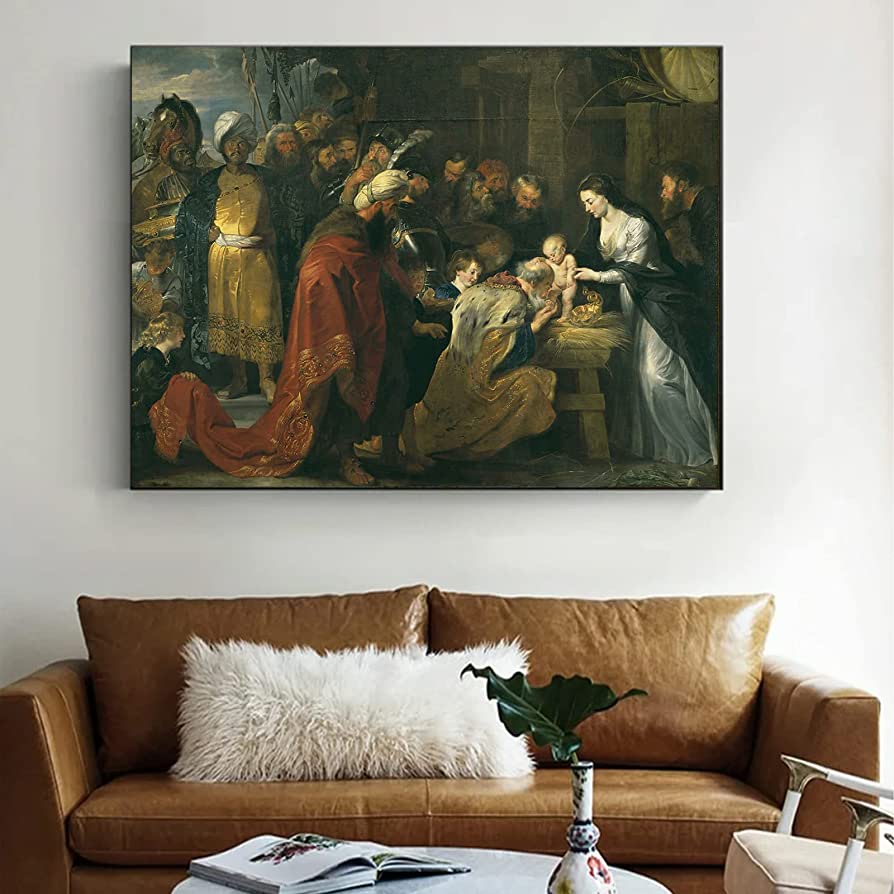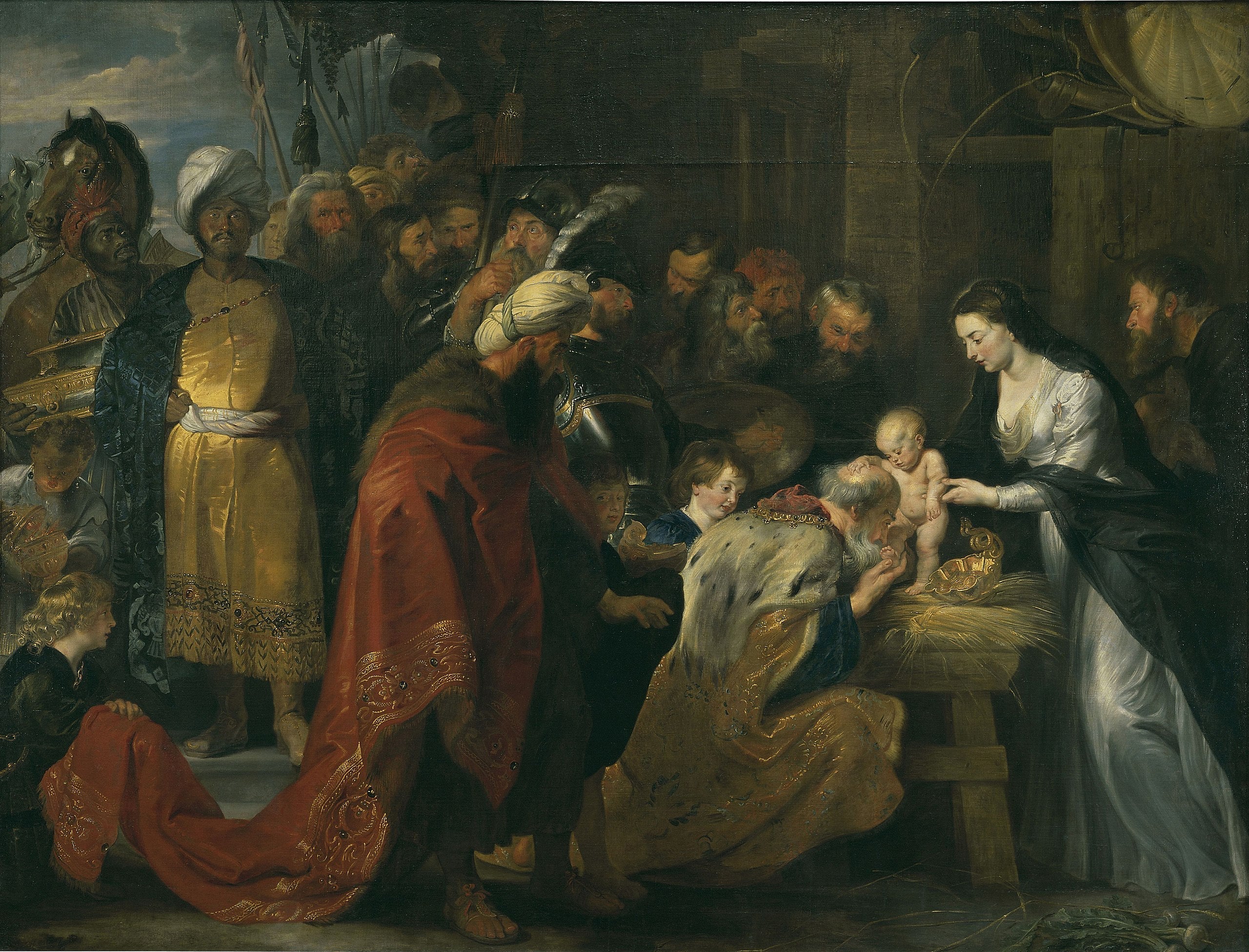Description
The Adoration of the Magi by Peter Paul Rubens, Lyon version, is one of several representations that this prominent Flemish Baroque painter produced on this theme. This particular version is in the Museum of Fine Arts in Lyon, France. It was painted around 1617-1618, during Rubens's period of greatest splendor.
An interesting feature of this painting is Rubens' attention to detail and realism in the depiction of figures and clothing. Although Rubens is known for his exuberant and dynamic style, in this work, he combines that style with a more naturalistic approach. The composition presents a scene in which the Three Wise Men, Melchor, Gaspar and Baltasar, pay homage to the baby Jesus. The Virgin Mary holds the child in her arms, while Joseph watches by her side.
Rubens uses a vibrant, contrast-rich color palette, which is typical of his style. The luxurious clothing of the Three Kings and the architectural environment highlight the opulence of the scene. Additionally, the dramatic lighting and posing of the figures create a sense of movement and depth.
In the painting, Rubens also includes exotic elements and animals, such as a camel and an elephant, reflecting the fascination of the time with the unknown and distant world. These details also underline the importance and wealth of the Three Wise Men, who, according to tradition, came from different regions of the world.
Another interesting aspect of this Lyon version is the way in which the painter approaches religious symbolism in the work. Rubens uses visual elements to convey the biblical message of the arrival of the Savior and the recognition of his divinity by the Magi.
For example, the painting's use of light is significant: the main light source appears to emanate from the infant Jesus himself, illuminating the nearby figures, symbolizing his role as the "Light of the World." In turn, the light also highlights the face of the Virgin Mary, emphasizing her importance in the Christian narrative.
The looks and gestures of the characters also play an important role in the composition. The Three Wise Men gaze with wonder and reverence at the baby Jesus, while the Virgin Mary holds him gently and lovingly. These expressions and gestures help convey the idea of adoration and devotion that is central to the Epiphany story.
The inclusion of additional figures, such as servants and other bystanders, also contributes to the realism and sense of scale of the scene. Through these figures, Rubens represents how the adoration of the child Jesus transcended social classes and cultural borders, and how his arrival was an event of great importance for all humanity.
This is a work that not only reflects the painter's talent and style, but also offers a detailed and symbolic vision of a seminal episode in Christian narrative, a masterful rendering of the subject that combines the painter's dynamic and exuberant style with attentiveness. meticulous to details and realism.




